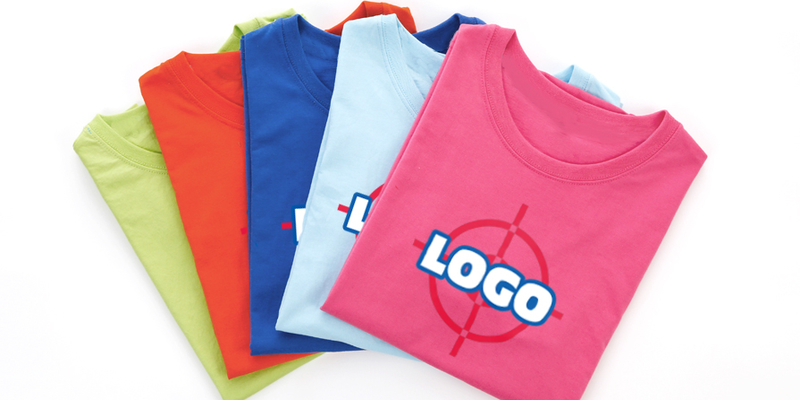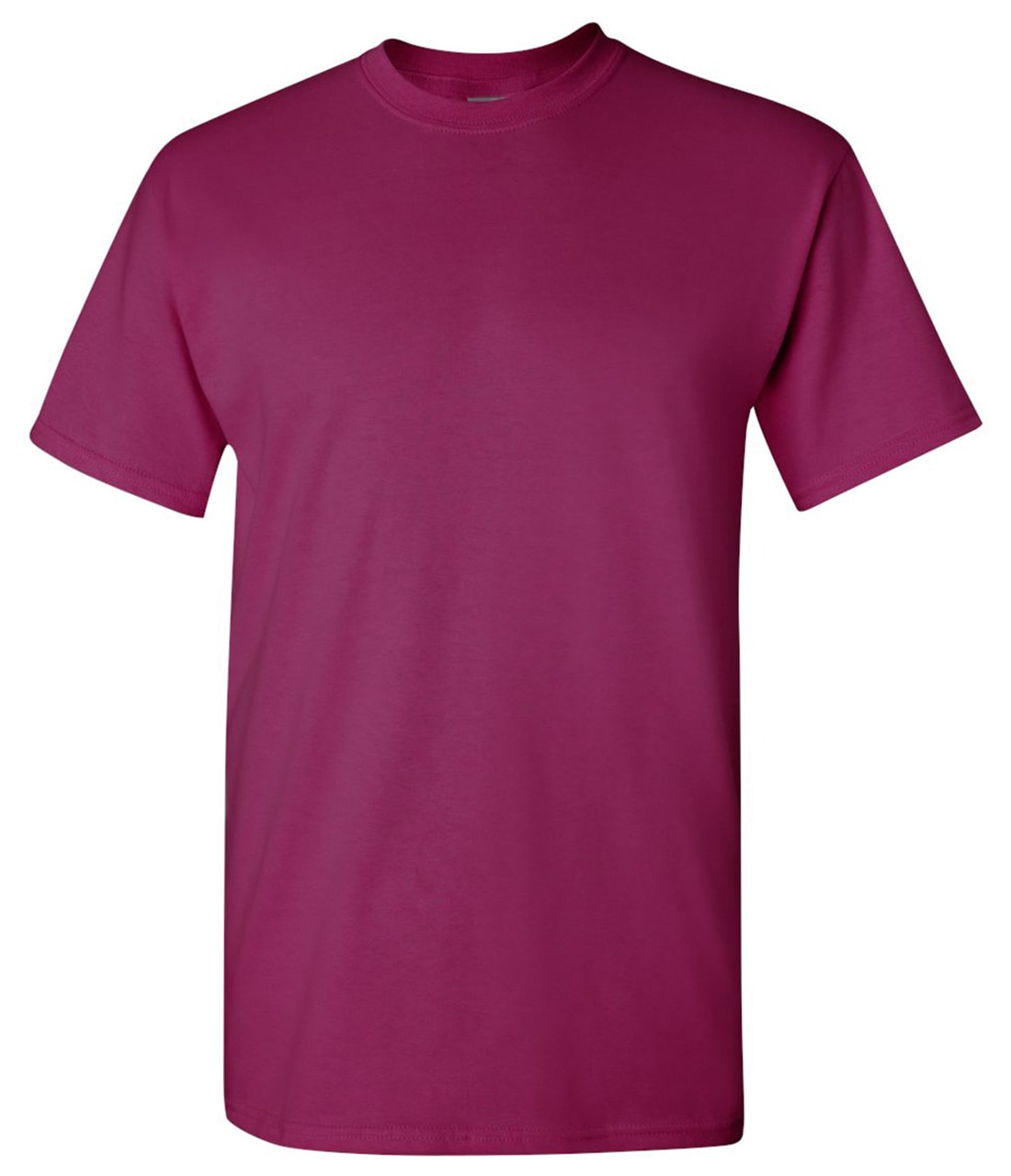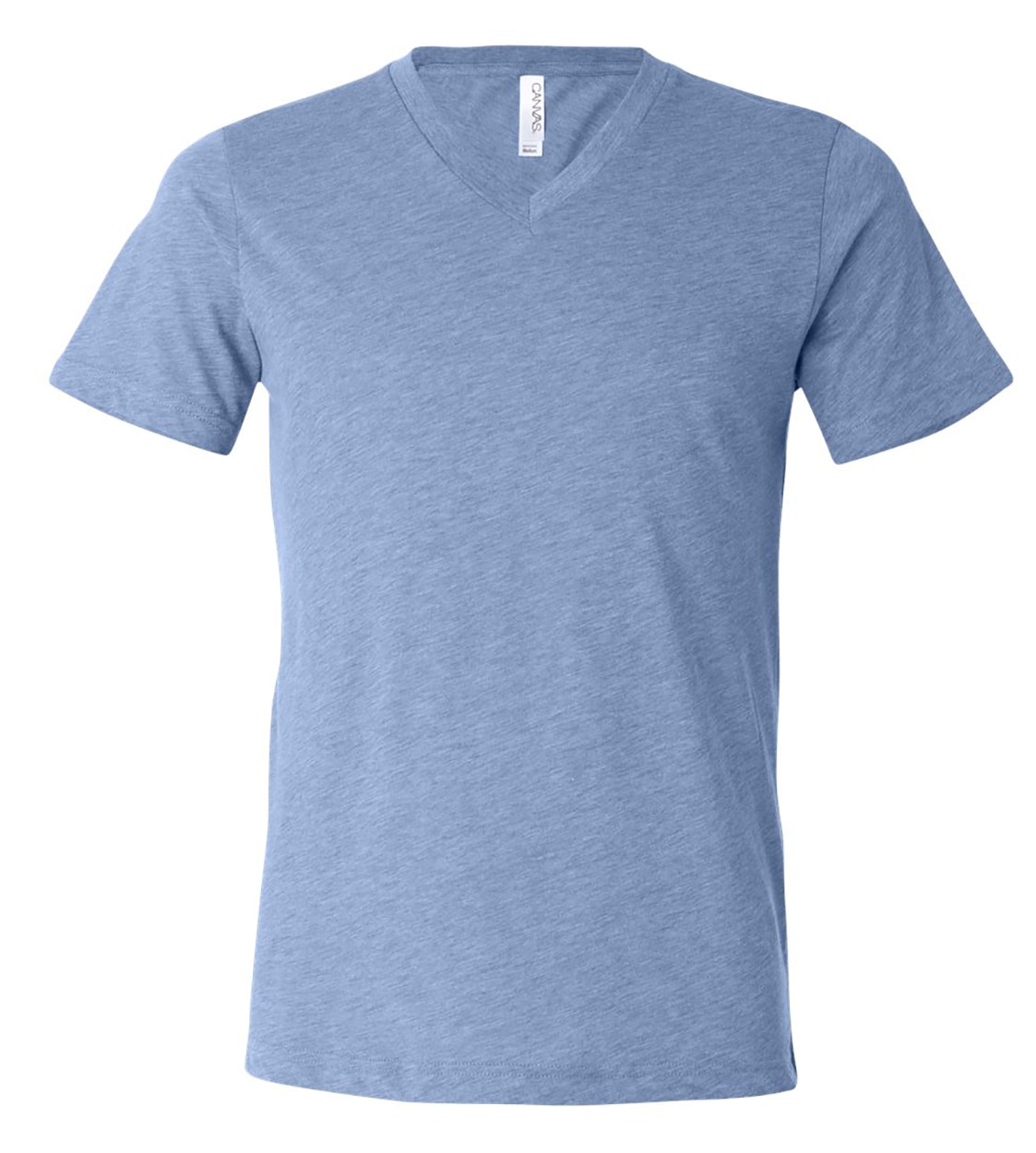
When you design your own t-shirt, finding the best quality of fabric should be a top priority. Whether you're designing tees for your business or sports team, you'll find that the material can transform everything.
The fabric you choose may impact the printing, durability, and price of your custom tee. From cotton and polyester to blended combinations, the possibilities are endless. Not sure which one is the best? Learn the differences for each type so you can personalize your custom t-shirts to perfection.
Cotton
One of the most commonly used fabrics for personalized t-shirts is cotton. Cotton is a natural fibre that is durable, lightweight, and comfortable. It is known to be a breathable and soft fabric, making it a popular choice for everyday wear. Also, the loose fit provided from the cotton material makes it a sought after choice for the hot and humid summer months.
In terms of durability, cotton is long-lasting. However, as a natural fibre it is prone to shrinking when washed at high temperatures. Cotton fabric is often preshrunk to reduce the effects of shrinking by condensing the material in a machine that pushes the fibres together and removing any space between stitches. Preshrunk fabric still shrinks between 3-7%, but this does not significantly impact the overall fit.
Cotton is also known for being a versatile fabric. However, since it dries slower than other fabrics like polyester, it’s not the best option for sportswear.

Cotton is available in a range of fabric types that differ based on how the cotton is made. Some fabrics may be spun or treated differently, which affects their quality and price. Higher-quality cotton has many advantages such as increased durability to protect against rips and tears.
Types of cotton fabrics include:
Organic
Organic cotton is produced using a sustainable and environmentally friendly process. It's made by a natural process that limits the use of toxic chemicals such as pesticides and synthetic fertilizers. This method preserves the health of the soil while creating a soft, durable fabric.
Ring-spun
Ring-spun cotton is produced by a twisting technique in which the cotton strands are twisted and thinned into a fine rope. The more the fibres are twisted, the softer the fabric. Ring-spun cotton is known to be a soft, strong material.
Jersey
Jersey is a knitted cotton fabric. This knit textile is soft, stretchy, and lightweight. Jersey also is a popular fabric choice to layer in an outfit as the material is insulating.
Combed
Combed cotton is produced by treating cotton fibres and then spinning them into yarn. The combing process involves removing short fibres that break off the fabric and then joining the fibres tightly to prevent unraveling and fraying. This manufacturing process makes combed cotton higher in quality, softer, and tougher than regular cotton.
Polyester
Unlike cotton, which is naturally grown, polyester is a synthetic fabric that is made from petroleum-based products. A popular choice for custom apparel, polyester is a breathable and lightweight fabric that's often used for sportswear. Many polyester clothing items are moisture-wicking or treated to be quick-drying. Because of this, polyester clothing may feel clammy in hot weather and warm in colder weather.
Compared to cotton, polyester is silkier to the touch. Because it's blended with other material, polyester may cause irritation to those with sensitive skin. This means that natural cotton fibre is a safer option.
Polyester is stronger than cotton and most blended fabrics. When cared for properly, polyester is resistant to wrinkling, fading, and shrinking. Since it can withstand wear and tear, polyester has great longevity and tends to keep its original shape.
Rayon
Similar to polyester, rayon is a synthetic blend of fabric that is commonly used for sports items. This fabric is a blend of natural materials such as cotton, plants, and trees. Some chemicals are also used in its manufacturing process, which makes it a semisynthetic fabric. Made to be a more affordable alternative to silk, rayon is breathable and silky.
In terms of durability, rayon isn’t as strong as its competitors. Because using a washing machine for rayon can result in bleeding, stretching, or shrinking, the material is best maintained by hand-washing.
Rayon has characteristics of other fabrics such as silk and cotton, making it useful for several types of clothing. Plus, the fabric drapes against the body, giving it a pleasant form. Often used for casual clothing and sportswear, many types of rayon like viscose rayon also are moisture-absorbent. Rayon gains popularity for its smooth texture, slimming fit, and versatile use.
Fabric Blends
Blended fabrics are made by combining two or more different fabrics. These blends are designed to achieve certain characteristics such as improved feel, texture, and durability.

In addition, they may be produced at a lower cost. By combining various materials into one, the manufacturer can create a textile with the best qualities from different fabrics.
Tri-blend
This well-known fabric is a blend of 50 percent polyester, 25 percent cotton, and 25 percent rayon. The combination results in the best of all three worlds — the soft feel of cotton, the durability and strength of polyester, and the flattering fit of rayon.
Cotton-polyester blend
Combining the comfort of cotton with the longevity of polyester, this blend is a popular option for clothing made for everyday use. Cotton-polyester blends remain lightweight and cool while having the wrinkle resistance and strength to help ensure long-term use.
Making the Choice
When it comes to designing your personalized t-shirts, pick the fabric that covers all your needs. By sampling some different options, you'll be able to make your t-shirt design shine.







